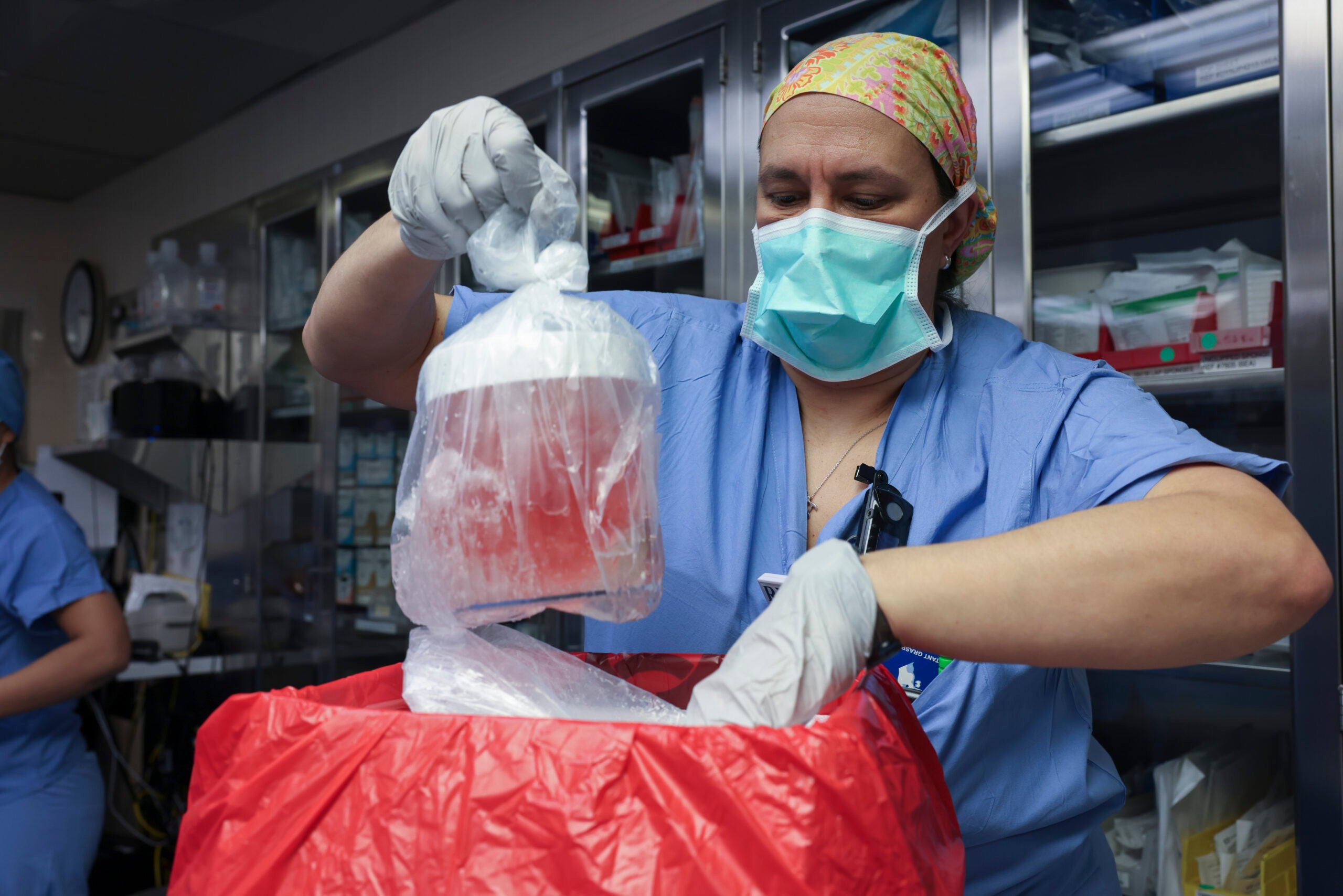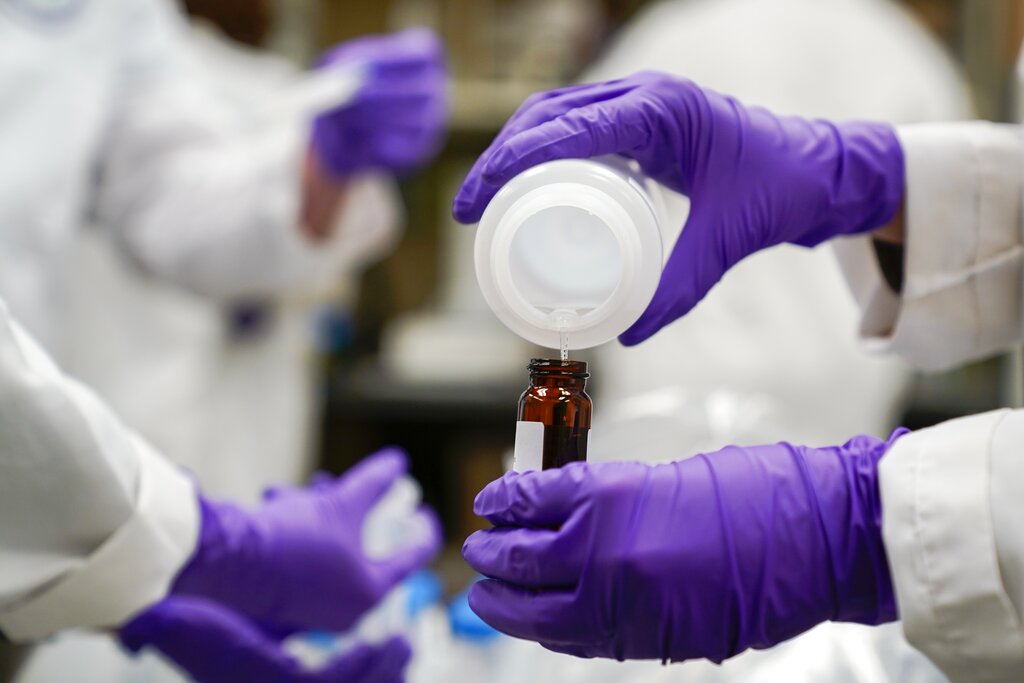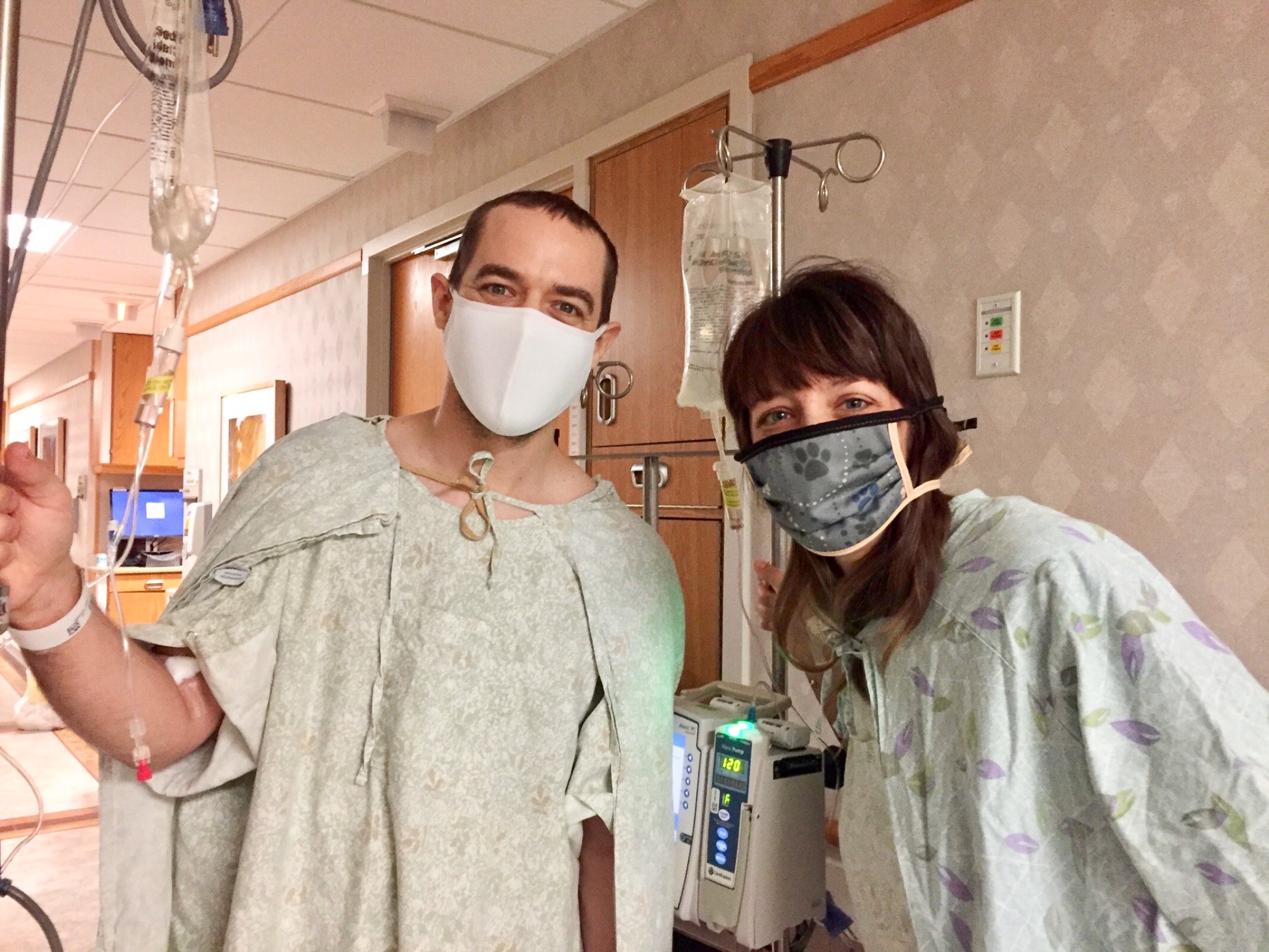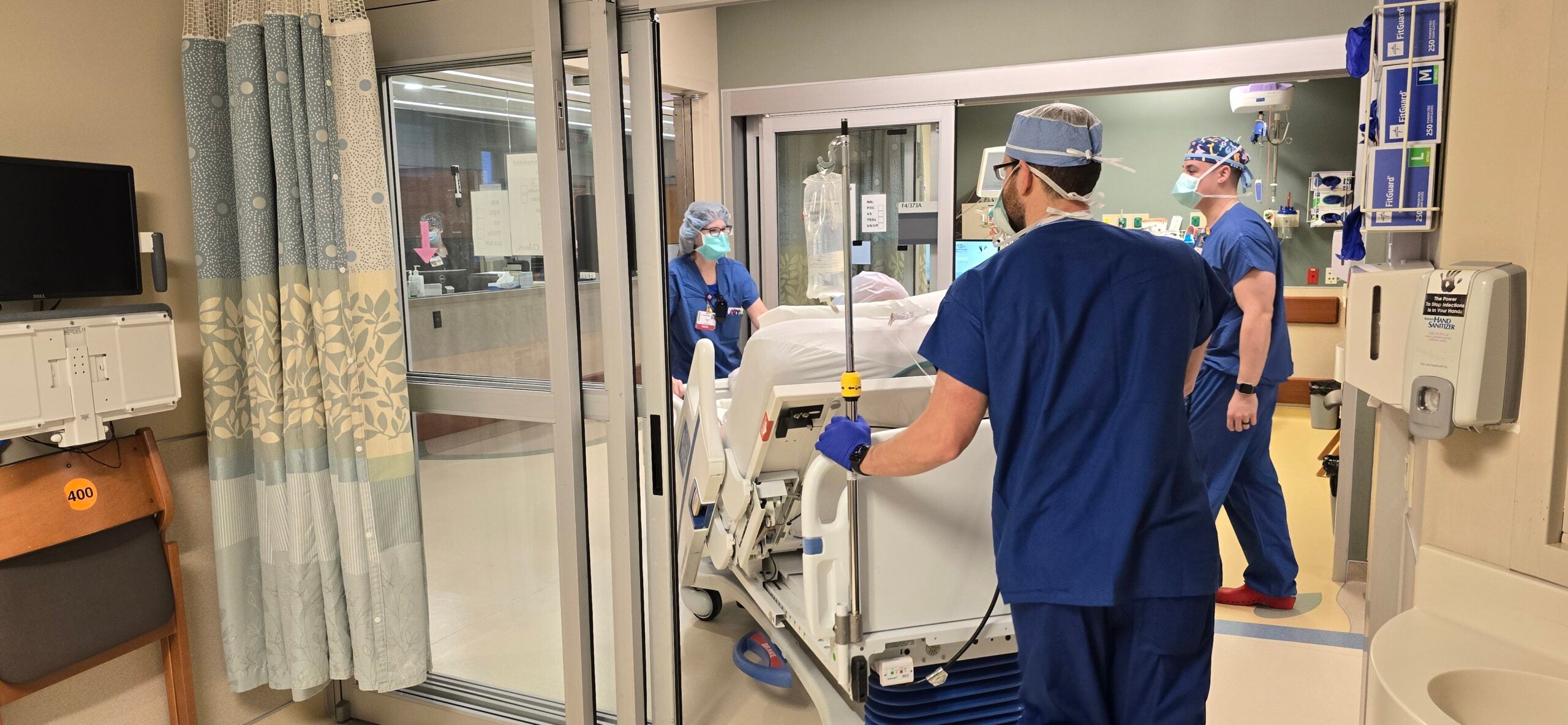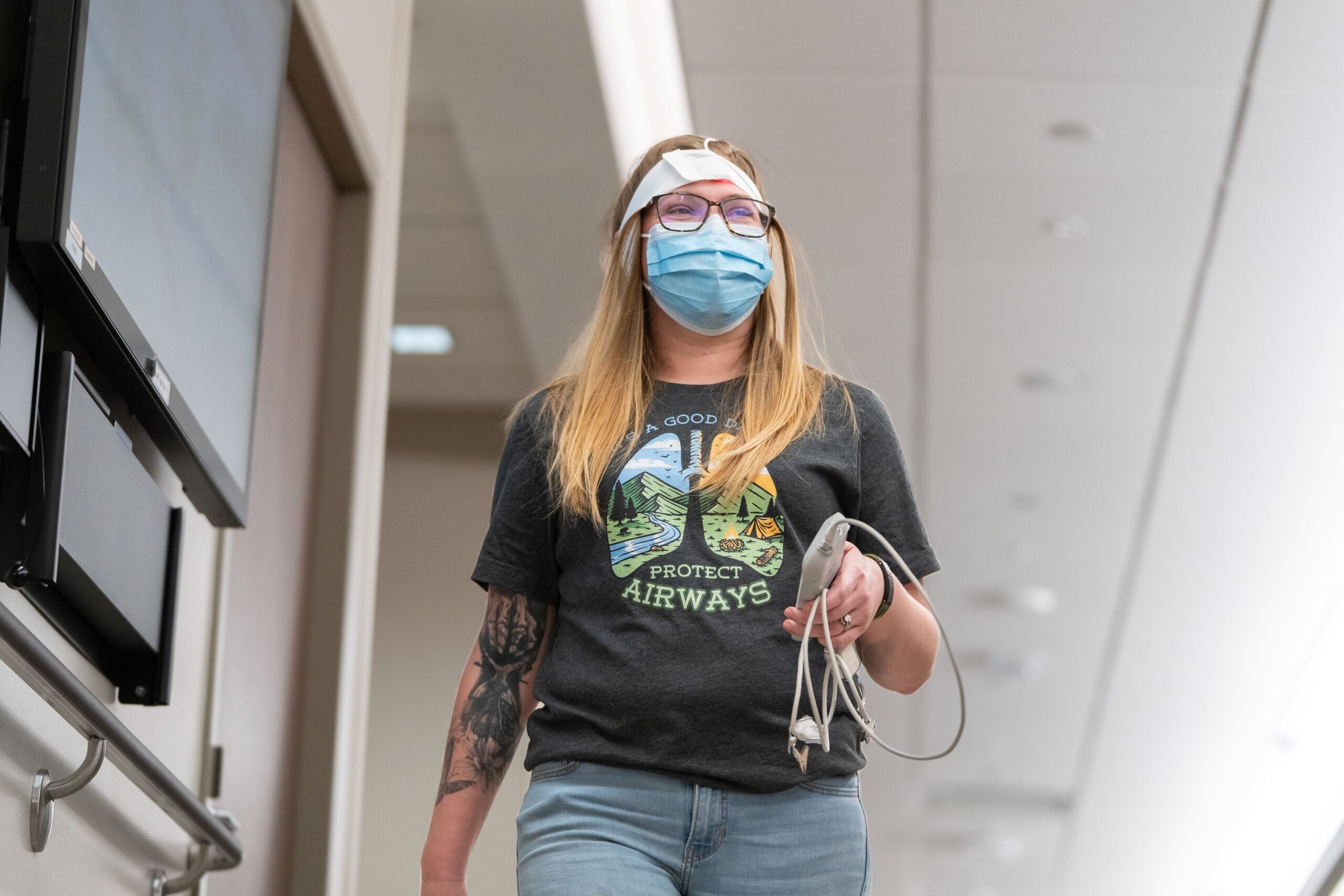For more than a decade, 62-year-old Richard Slayman lived with end-stage kidney failure.
On April 3, he left a Boston hospital free from the burden of dialysis appointments all because of a pig.
Slayman is the first living human to receive a transplant of a genetically modified pig kidney. The experimental surgery was a global first, according to Massachusetts General Hospital.
News with a little more humanity
WPR’s “Wisconsin Today” newsletter keeps you connected to the state you love without feeling overwhelmed. No paywall. No agenda. No corporate filter.
The milestone transplant excites Dr. Anna Gaddy of the Medical College of Wisconsin and Dr. Didier Mandelbrot of UW Health who work with patients living with chronic kidney disease.
Both kidney specialists recently told WPR’s “The Morning Show” that using animal organs for human transplant would mean organs are more readily available in Wisconsin.
According to the National Kidney Foundation of Wisconsin, more than 1,200 people in the state are waiting for kidney transplants.
“The burden of chronic kidney disease in the United States is just enormous and the vast majority of people with chronic kidney disease don’t know that they have it,” Gaddy said.
Mandelbrot oversees the UW Health Kidney and Pancreas Transplantation program and said transplanting animal organs into humans, also known as xenotransplantation, is a concept that dates back 50 years ago.
“The size of the pig’s kidney is very similar to the size of human kidneys,” Mandelbrot said.
He said a team of researchers developed the genetically modified pig transplant. The team includes David Aufhauser and Dixon B. Kaufman of the UW Health Transplant Center and Dhanansayan Shanmuganayagam of the UW Center for Biomedical Swine Research and Innovation.
Mandelbrot said scientists removed 69 genes from the donor pig to prevent the transfer of swine viruses.
“One of the main concerns over the years is that potentially a virus found in pigs could be transplanted along with those organs and then become dangerous to humans,” Mandelbrot said.
According to Gaddy, ethical concerns with using animals as organ donors is a “gray area,” and the medical community should be careful with how this method is developed moving forward.
“We don’t have data for how this organ is going to perform longitudinally. We know that while pigs have a quicker life cycle, they also don’t live as long as humans,” Gaddy said.
Mandelbrot agreed, with one additional thought.
“There’s pig farms already. The world already consumes many pigs,” Mandelbrot said. “So the idea of making pig farms of genetically modified pigs for the purpose of saving lives and doing transplants is much more readily acceptable by society.”
Slayman’s groundbreaking surgery was conducted through a “compassionate use” experiment allowed in limited cases by the Food and Drug Administration outside of clinical trials. Mandelbrot said it could take years before the FDA approves widespread use of pig to human transplants in the U.S.
“Further research is necessary to really refine the process to better define benefits as well as risks,” Mandelbrot said.
Wisconsin Public Radio, © Copyright 2026, Board of Regents of the University of Wisconsin System and Wisconsin Educational Communications Board.

